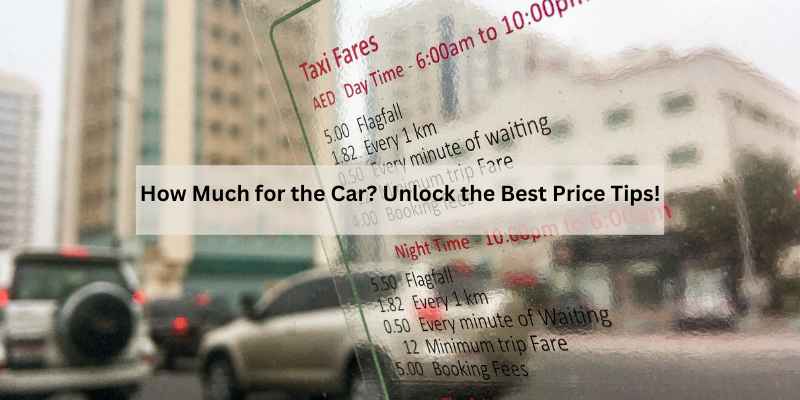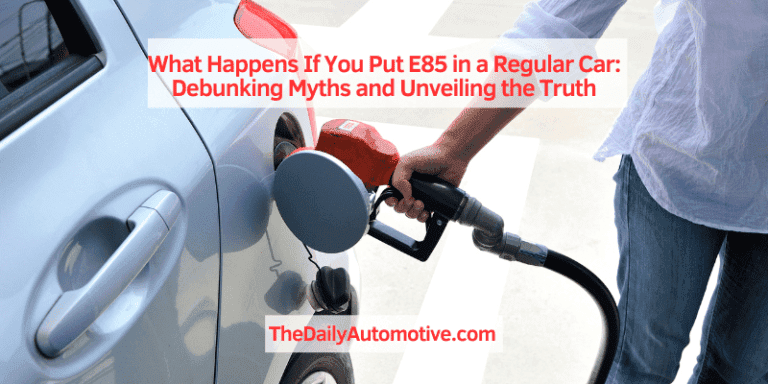How Much for the Car? Unlock the Best Price Tips!
The cost of a car varies widely based on make, model, and condition. Typically, new cars range from $20,000 to over $100,000.
Buying a car is a significant investment that requires careful consideration. Prices fluctuate based on various factors, including the vehicle’s age, features, and market demand. New cars often come with warranties and the latest technology, while used cars may offer better value at a lower price.
Research is essential to understand what fits your budget and needs. Financing options, insurance costs, and maintenance expenses also play crucial roles in the overall cost of ownership. Understanding these elements helps buyers make informed decisions and get the best value for their money.
Setting Your Budget
Setting a budget for a car is very important. Start by assessing your finances. Look at your monthly income and expenses. This helps in understanding how much you can afford.
Next, determine your price range. Think about how much you can spend. Consider costs like insurance, fuel, and maintenance. These can add up quickly.
It’s wise to save some money for a down payment. A larger down payment can lower your monthly payments. Always keep your budget in mind while shopping for a car.
The True Value Of A Vehicle
Understanding the true value of a vehicle is essential. Start by researching market prices. Websites like Kelley Blue Book and Edmunds can help. They provide current values based on make, model, and year.
Consider the vehicle’s depreciation. New cars lose value quickly. A car can lose up to 20% of its value in the first year. After five years, it might be worth only 40% of the original price.
Check similar cars in your area. Look for listings that match your vehicle’s condition and mileage. This will give you a better idea of the fair price.
Pre-purchase Inspections
Scheduling a pre-purchase inspection with a mechanic is important. Choose a trusted mechanic who knows your car type. Call ahead to set an appointment. Be clear about your needs and concerns. Ask how long the inspection will take.
Understanding inspection results can help you decide. Mechanics will provide a detailed report. Pay attention to major issues like engine problems or brake wear. Minor issues can often be fixed easily. Ask questions if something is unclear. This helps you make an informed choice.
Timing Your Purchase
Understanding seasonal price fluctuations can help you save money on your car purchase. Prices often drop during certain times of the year. For example, buying in winter can lead to better deals. Dealers want to clear out old stock before new models arrive.
End of month sales tactics are also worth considering. Many dealerships have monthly sales goals. Salespeople may offer lower prices to meet these targets. This can mean significant savings for buyers. Shopping at the end of the month can lead to better deals.
| Season | Price Trend |
|---|---|
| Winter | Lower prices |
| Spring | Average prices |
| Summer | Higher prices |
| Fall | Lower prices |
Negotiating Strategies
Starting the bid is crucial. Begin with a reasonable offer. Research the car’s market value first. This will help you make a smart decision.
Prepare to negotiate. Sellers expect some back-and-forth. Be ready to adjust your offer. Show interest, but don’t seem desperate.
Concessions are part of the deal. If the seller counters, think carefully. Offer to meet them halfway. This shows you are serious.
Always keep your budget in mind. Don’t go beyond what you can afford. Stick to your plan for a successful deal.
Dealer Vs. Private Seller
Buying from a dealer has its benefits. Dealers often provide warranties and financing options. They may have a larger selection of cars. However, prices can be higher than private sales.
Buying from a private seller can save you money. Prices are usually negotiable. Sellers may be more flexible on terms. Yet, cars may lack warranties or certification.
| Aspect | Dealer | Private Seller |
|---|---|---|
| Price | Higher | Lower |
| Selection | Larger | Limited |
| Warranty | Often included | Rarely included |
| Negotiation | Less flexible | More flexible |
Financing Options
Financing a car involves understanding loan terms and rates. Most loans have a fixed or variable rate. A fixed rate stays the same throughout the loan. A variable rate may change, affecting monthly payments.
Loan terms typically range from 36 to 72 months. Shorter terms mean higher monthly payments but less interest paid overall. Longer terms lower monthly payments but may increase total interest costs.
Consider whether to lease or buy a car. Leasing often has lower monthly payments. However, buying a car means owning it outright. Consider your budget and driving habits before deciding.
| Option | Monthly Payment | Ownership |
|---|---|---|
| Lease | Lower | Not owned |
| Buy | Higher | Owned |
Closing The Deal
Understanding the paperwork is key to closing the deal on a car. Read all documents carefully. Ensure that all details are correct before signing. Pay attention to the price, financing terms, and fees.
Securing a warranty is important for your peace of mind. A warranty protects you from unexpected repairs. Check what the warranty covers and for how long. Also, ask about return policies. Know your rights if you want to return the car.
| Item | Details |
|---|---|
| Warranty | Duration and coverage options |
| Return Policy | Timeframe and conditions for returns |
Frequently Asked Questions
How Do I Determine A Car’s Value?
To determine a car’s value, research similar models in your area. Use online valuation tools like Kelley Blue Book or Edmunds. Consider factors like age, mileage, condition, and market demand. A thorough inspection by a professional can also provide insights.
This helps you make an informed decision.
What Factors Affect Car Pricing?
Several factors affect car pricing, including brand reputation, model popularity, and overall condition. Mileage plays a significant role, as lower mileage often equates to higher value. External factors, like economic conditions and seasonal demand, can also impact prices. Always consider these when evaluating a car’s worth.
Is It Cheaper To Buy New Or Used?
Buying a used car is generally cheaper than buying new. New cars depreciate rapidly, losing value within the first few years. However, used cars can offer great value if well-maintained. Consider your budget and needs when deciding which option is best for you.
How Do I Negotiate A Car Price?
To negotiate a car price, research beforehand and know the vehicle’s market value. Be polite yet firm during discussions. Start with a lower offer based on your research. Highlight any issues with the car to strengthen your position. Patience is key; don’t rush the process.
Conclusion
Determining the right price for a car involves various factors. Consider your budget, the vehicle’s condition, and market trends. Researching thoroughly will help you make an informed decision. Ultimately, understanding your needs and financial situation is key. Take your time, and find a car that fits both your lifestyle and your wallet.







